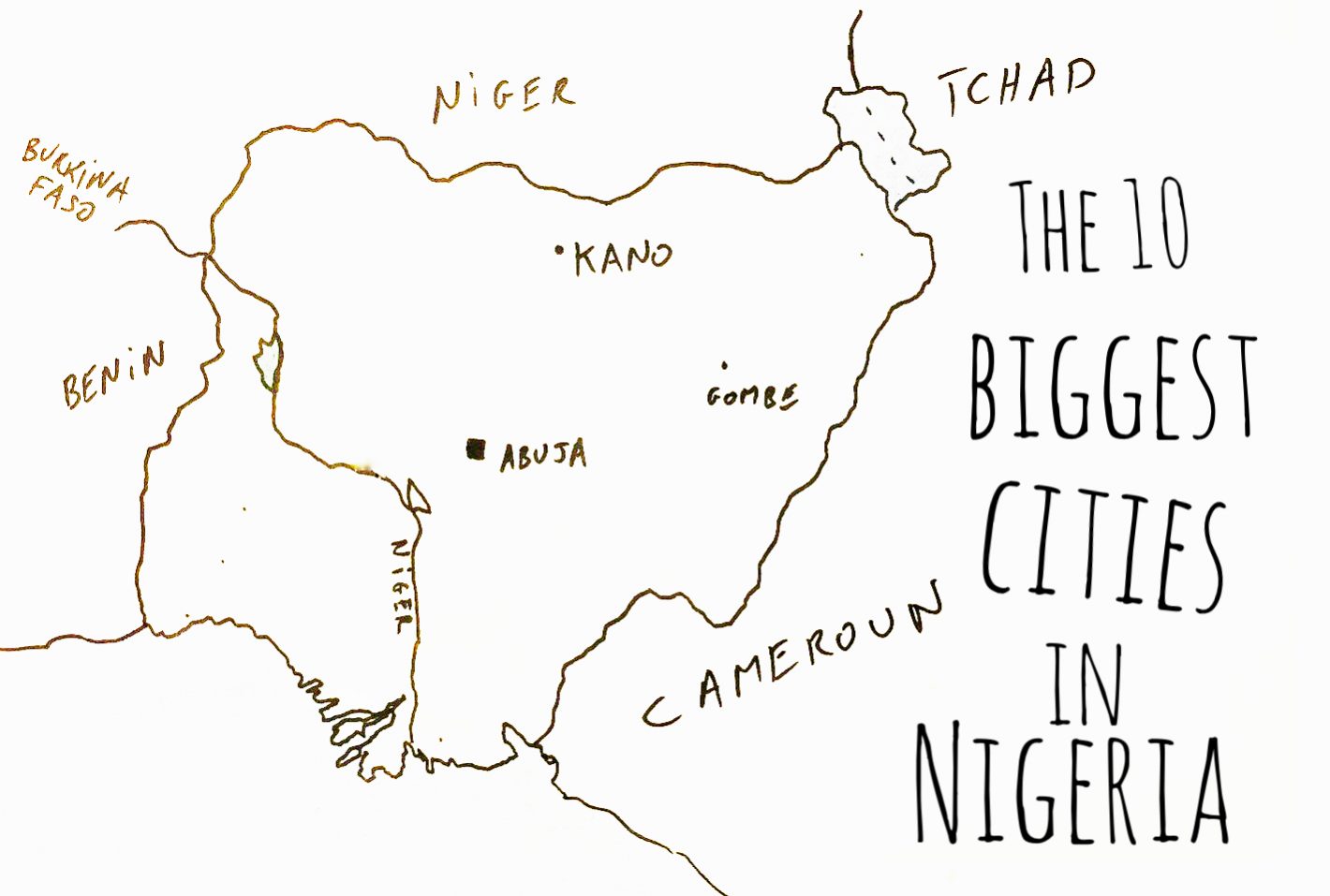1. Lagos, the largest city in Africa
22,829,561 inhabitants are the staggering figure of the largest megalopolis in Africa. Lagos is one of the most populated cities in the world. The largest city in Nigeria seems to be the city of all superlatives. Its population increased twentyfold during the 20th century. This city has one of the highest population growth rates in the world.
Indeed, the capital extends from the Gulf of Guinea inland on more than 1,117 square kilometers. This gives a density of nearly 17,000 inhabitants per square kilometer. And still, nothing is really sure, the demography in Nigeria remains unknown. What is certain is that it is one of the largest cities on the African continent.
Politically, Lagos was the capital of the country until 1991. Despite the transfer of institutions, the city remains an undeniable economic power. Its port is one of the largest in Africa, and it is also the largest industrial center in the country. The consequences are significant air pollution, uncontrolled urban development, and a worrying crime rate.
2. Ibadan, one of the largest cities in Nigeria
The second largest city in Nigeria is Ibadan with an estimated population of 5,881,345. This Nigerian city is located in the southwestern part of the country in Oyo State not far from the capital.
The city was founded in 1750 and was the site of the country’s first university in 1948. The city lies at an altitude of 240 meters and covers an area of about 3100 square kilometers. It is located along the A1 highway, which runs from the port of Lagos to the northern part of the country and to Kano, the major city in the north.
3. Kano, the big city in the North
With its estimated 4,956,615 inhabitants, Kano is one of the oldest cities in Nigeria. Traces of settlement can be found as early as the 6th century A.D. and it is certain that the city of Kano was founded around the year 1000. Nevertheless, the city has experienced unprecedented development since the end of the 20th century.
Geographically, Kano is located in northern Nigeria at an average altitude of 490 meters. It should be noted that the city of Kano is one of the largest cities in Africa in terms of population.
4. Abuja, the political capital of Nigeria
The country’s capital city has a population of nearly 2,695,000 (2019 estimate). Abuja is located in the center of the country in the Federal Capital State of Nigeria. Just as in Côte d’Ivoire, it is the center of the country that was chosen for the installation of the capital. This was done in order to find a balance between all the different ethnic groups in the country.
5. Benin City
One of the largest cities in Nigeria is none other than Benin City. A city with a population of 2,571,798. Its name comes from the fact that the city was historically the capital of the Kingdom of Benin (XII century – end of XIX century). As a reminder, the Kingdom of Benin was composed of current Benin, a large part of Nigeria, and part of Togo. During this period this great capital of West Africa was called Edo. Etymologically, Benin comes from the deformation of the name Ubinu (Itsériki dialect), a word that means “capital seat”.
Benin City is a city in southern Nigeria whose main activities are industry and agriculture and crafts. The industry revolves around the manufacture of palm oil and rubber.
6. Port Harcourt
This Nigerian city of 2,306,662 inhabitants is a port city established in the south of the country around 1910 by the British. This city is located in Rivers State which as its name suggests means that it is in the Niger Delta area, which is one of the largest rivers in Africa. Port Harcourt is bordered by a branch of the Niger River called the Boony. This is the easternmost part of the Niger Delta.
7. Kaduna
The population of Kaduna, a large Nigerian city in central Nigeria, is 2,192,441 inhabitants. It is located in a state with the same name as the city.
8. Onishta
This city in the south of the country, which is located between the cities of Benin, has a population of 2,147,000 inhabitants. It is one of the top 10 largest cities in Nigeria.
This city in the state of Anambra was founded in 1550. But this ancient Nigerian city is famous for other reasons, especially during the Biafran war (a province in the southeast). Pipeline sabotage in the area makes it one of the most polluted cities in the world.
9. Aba
This city in the southeast of the country has always been an important place for trade and commerce. It is the second-largest industrial city in Nigeria. Aba had a population of 1,736,361 at the last census.
10. Ikorodu
This city on the outskirts of Lagos has a population of 1,414,000. Like its capital, this city is experiencing excessive growth.
Nigeria, a large country in West Africa
This large country of 923,768 square kilometers is located on the shores of the Gulf of Guinea (Atlantic Ocean). The largest city in the country is Lagos, but as for the Ivory Coast, its capital is inland and is called Abuja. It is a small city that gathers administrative, judicial, and political powers in one place. Lagos, on the other hand, is a disproportionately large economic capital that has developed thanks to its oil deposits.
